
Posted on 12/17/2019 5:05:08 AM PST by Homer_J_Simpson





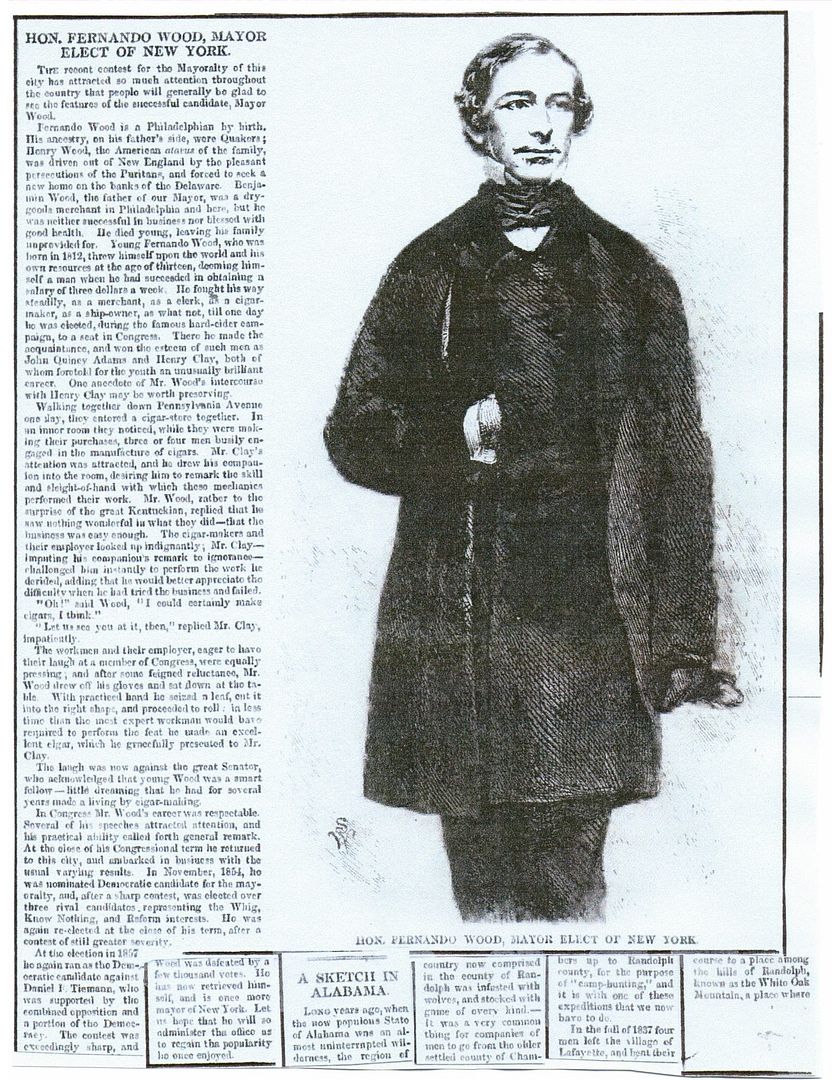
















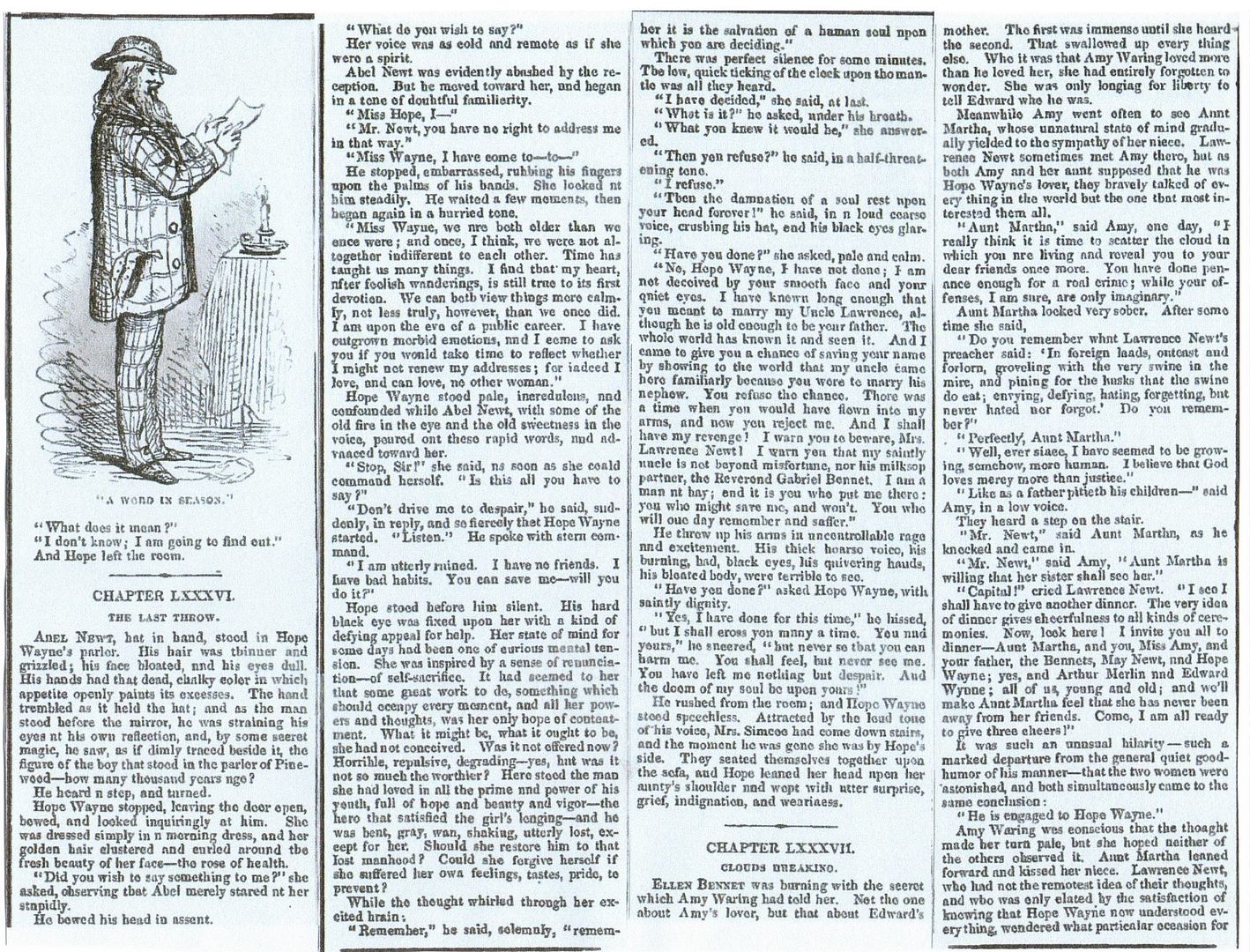


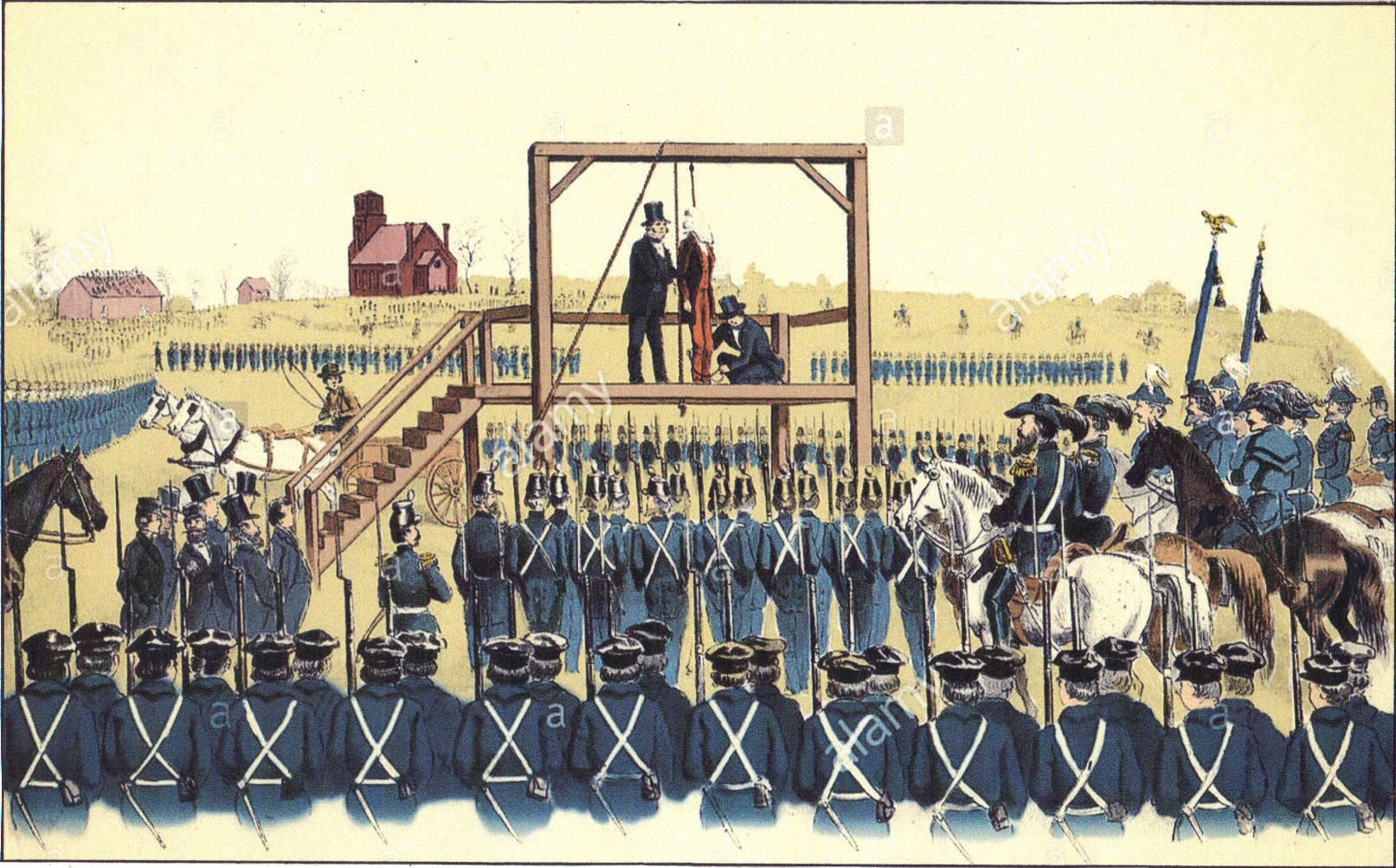
Free Republic University, Department of History presents U.S. History, 1855-1860: Seminar and Discussion Forum
Bleeding Kansas, Dred Scott, Lincoln-Douglas, Harper’s Ferry, the election of 1860, secession – all the events leading up to the Civil War, as seen through news reports of the time and later historical accounts
First session: November 21, 2015. Last date to add: Sometime in the future.
Reading: Self-assigned. Recommendations made and welcomed.
Posting history, in reverse order
To add this class to or drop it from your schedule notify Admissions and Records (Attn: Homer_J_Simpson) by reply or freepmail.
One of this issue’s lead stories is “North and South.” It’s all about Brown, the slavery issue and secession. Not a word about tariffs. Interesting.
COLUMBUS, Dec 18, [1859.]
DEAR SPOONER: From what you say in yours of the 14th, I infer you had not received mine previously written to you. It was directed to Cincinnati, and perhaps it has since reached you.
I do not desire to be quoted as expressing any opinions as to time or place of holding the Convention, or as to the mode of its organization either in respect to membership or number of delegates — or mode of electing them. The reasons for my not desiring even to seem to influence members of the Convention are obvious.
You, as our Ohio member, have a right to my views, and I will give them to you briefly:
1st. The Convention should be held between the Alleghenys and the Mississippi. It would be best, I think, to hold it at Pittsburg, Wheeling, Cincinnati or Covington, but next best, to hold it at Columbus, Indianapolis, Springfield or St Louis. Among these next best places, my judgment would incline to Indianapolis.
2d. The Convention should be held soon after the Democratic. This, I think, would be best. No considerable harm would probably result, however, if not held till the 17th June, as in 1856.
3. The Convention should be composed of all who are opposed to the extention of Slavery beyond the limits of Slave States, and in favor of reform in National Administration. The call should be addressed to Republicans and all others, without distinction of party, willing to unite for these objects. A resolution should be adopted expressing the opinion of the Committee that the members of the People's party of New Jersey and Penn'a, and all citizens of other States holding similar political principles, are regarded as described in the call and invited to participate in the Convention, but the Call should not be addressed to those parties as such.
4. The Committees should apportion the delegates among the States by recommending the election of, say, four Senatorial delegates from each State, and one Representative from each Congressional District, and additional representatives from each Congressional District for each six or seven thousand votes cast for Republican candidates, and another for a majority fraction of that number. Votes for opposition or people's Candidates in New Jersey or Pennsylvania, and for Anti-Lecompton Democrats supported by the Republicans, should be counted the same as Republican votes.
5. The Committee should recommend, and strongly recommend, the election of Senatorial delegates by State Conventions, and of Representative Delegates by District Conventions.
I have no time to argue these views. I am, however, strong in the faith that their adoption would secure fairness and equal representation in the nomination — harmony and vigor in the support of the nominees — In what is now a duty — success not merely for our organization but for our principles — success, therefore, lasting and honorable.
Ashley, I understand, will represent Kentucky under Clay's proxy. You can show this letter to him and if you think proper to Mr. Willey or Mr. Howard of Connecticut. Let me hope that you and Ashley will act together. It is desirable, many ways.
* From letter book 7, pp. 61-62
SOURCE: Diary and correspondence of Salmon P. Chase, Annual Report of the American Historical Association for the Year 1902, Vol. 2, p. 283-4
George M. Parsons is the Chairman of the Ohio Republican Central Committee. Samuel Galloway is an Ohio lawyer and politician.
Continued from December 14 (reply #12.)

Abraham Lincoln: Speeches and Writings 1859-1865, edited by Don E. Fehrenbacher

The Diary of George Templeton Strong, Edited by Allan Nevins and Milton Halsey Thomas

The Diary of George Templeton Strong, Edited by Allan Nevins and Milton Halsey Thomas

Abraham Lincoln: Speeches and Writings 1859-1865, edited by Don E. Fehrenbacher

The Diary of George Templeton Strong, Edited by Allan Nevins and Milton Halsey Thomas
SEMINARY, Dec. 21, 1859.
DEAR GENERAL: . . . I have also another long letter from Bragg, who warms in our favor, and he will be a valuable coadjutator, should you seek legislative action. He discusses two suggestions I made: First, let the state maintain their sixteen cadets, or double the endowment. Meet Uncle Sam half way. I think the latter the simplest offer, and if they do this we should ask nothing in the way of building; with a certain income of $16,200 we could annually enlarge to the extent of three to four thousand.
I think to ask any large sum such as $30,000, would startle the friends of the Seminary, whereas to do as much for their Seminary as the United States have done, would be in the nature of a fair banter and could easily be debated.
I would like much to come up Christmas, for I am lonely enough here, and may do so if the day be temptingly warm. Still I now have Jarreau's negroes all at work - scrubbing, cutting wood, etc., and would hate to leave, as when the cat is away, etc., and I see they watch me, as I make my round about twenty times a day. All my New Orleans purchases are here safe and sound, except some forty tables which I hourly expect. Still I have forty on hand enough to study by even should a mistake have occurred. I bought eighty, but they had to be put together after I bought them. I go to Alexandria tomorrow to buy a few small items. I beg you will give yourself no uneasiness about the regulations. I am in no hurry about them. I have boards, like the bulletin board in the main hall, on which I will post “roll call,” “mess hall regulations,” “regulations for rooms,” etc., in the form of orders, and each cadet will study and remember them quite as well as if they were printed.
After Monday next I will be prepared to entertain gentlemen or ladies, and think then a visit here would be opportune.
SOURCES: Walter L. Fleming, General W.T. Sherman as College President, p. 90-1

The Diary of George Templeton Strong, Edited by Allan Nevins and Milton Halsey Thomas
BOSTON, December 22, 1859.
DEAR SIR, — I am sorry to see, by a reported speech of yours, that you are among those who have been duped by vile fellows who believe that a large number of decent men in this part of the country are implicated in the affair of Harper's Ferry. Among other names I find my own, and I am the person alluded to as a cotton speculator who employed Brown to do his work. To show you how absurd this whole plan of libel will appear when it is examined, I will state my own case.
1st. I am the son of Amos Lawrence, now deceased, whom you knew, and who brought me up to be a “national” man, as we understand that term. 2d. I have been so decided in my own opposition to the formation of sectional parties, that those who voted for Fillmore in Massachusetts, in 1856, nominated me for governor, but I declined. They have requested me to be a candidate every year since that, and last year I did run against Mr. Banks. 3d. Though largely interested in cotton factories as a shareholder, I never owned a bale of cotton in my life, and never had any business with any person whom I knew as a speculator in cotton. Some years ago I took a great interest in our people who settled in Kansas, many of whom went from Lowell and Lawrence with their families. They were shockingly abused, and if it were not for my wife and seven children at home, I would have taken a more active part in that business. But that has passed long ago; it did not induce me to join the Republicans, though it did most of my friends. I took part with Mr. William Appleton and my relative Mr. F. Pierce in the Faneuil Hall meeting here the other day, and with most of our people am called a “hunker,” and even in Mississippi should be a law and order man. You will do me a favor, if you will prevent my being summoned to Washington on so foolish an errand as to testify about Harper's Ferry.
A. A. L.
SOURCE: William Lawrence, Life of Amos A. Lawrence: With Extracts from His Diary and Correspondence, p. 136-8
SEMINARY, Dec. 23,1859.
. . . I have the New Orleans papers of the 18th. I see that the election of speaker was still the engrossing topic, John's vote being 112, 114 being necessary to a choice. Still I doubt his final success on account of his signing for that Helper book. Without that his election would be certain. I was at Alexandria yesterday and was cornered by a Dr. Smith, a member of the Board of Supervisors and at present a candidate of this Parish for a seat in the state senate, to which he will surely be elected. He referred pointedly to the deep intense feeling which now pervades the South, and the importance that all educational establishments should be in the hands of its friends. I answered in general terms that I had nothing to do with these questions, that I was employed to do certain things which I should do, that I always was a strong advocate of our present form of government, and as long as it remained I should be true to it, that if disunion was meditated in any quarter I should oppose it, but that if disunion did actually occur, an event I would not contemplate, then every man must take his own course and I would not say what I would do. I still believe somehow or other efforts will be made to draw me out on these points and I shall be as circumspect as possible.
A good many gentlemen and ladies have been here to see the Seminary which begins to attract notice. All express great pleasure at seeing the beautiful building and hope it will become a center of attraction. About the time you receive this we will begin to receive cadets and then things will be pretty lively. I will have nothing to do in the way of teaching this term, my time will be mostly taken up by supervising others, and seeing to the proper supplies and furnishment. . .
SOURCES: Walter L. Fleming, General W.T. Sherman as College President, p. 86-7
SEMINARY near Alexandria, December 23, 1859.
DEAR TOM: I received last night a Leavenworth paper addressed in your handwriting and I wish you would repeat them. I get the New Orleans papers regularly, but they never say Kansas; indeed I know not if they are admitted south, Kansas being synonimous with abolitionism.
You can readily imagine the delicate position I now hold at the head of a seminary to open January 1 next, for the instruction and training of young men to science and arms, at the same time that John Sherman's name is bandied about as the representative of all that is held here murderous and detestable. Thus far all have had the delicacy to refrain in my presence with but one casual exception, but I would not be surprised if at any time I should be officially catechised on the subject. This I would not stand of course.
I would not if I could abolish or modify slavery. I don't know that I would materially change the actual political relation of master and slave. Negroes in the great numbers that exist here must of necessity be slaves. Theoretical notions of humanity and religion cannot shake the commercial fact that their labor is of great value and cannot be dispensed with. Still of course I wish it never had existed, for it does make mischief. No power on earth can restrain opinions elsewhere, and these opinions expressed beget a vindictive feeling. The mere dread of revolt, sedition or external interference makes men ordinarily calm almost mad. I, of course, do not debate the question and, moderate as my views are, I feel that I am suspected, and if I do not actually join in the praises of slavery I may be denounced as an abolitionist.
I think it would be wise if northern people would confine their attention to the wants and necessities of their own towns and property, leaving the South to manage slavery and receive its reward or doom, let what may come.
I am fully conscious that respectable men here not only talk but think of the combinations to be made in case of a rupture. It may be that they design these military colleges as a part of some ulterior design, but in my case I do not think such to be the case. Indeed it was with great difficulty the Board of Supervisors were prevailed on by an old West Pointer to give the Seminary the military feature, and then it was only assented to because it was represented that southern gentlemen would submit rather to the showy discipline of arms than to the less ostentatious government of a faculty. Yet, I say that it may result that men are preparing for the wreck of the U.S. government and are thinking and preparing for new combinations.
I am willing to aid Louisiana in defending herself against her enemies so long as she remains a state in the general confederacy; but should she or any other state act disunion, I am out. Disunion and Civil War are synonimous terms. The Mississippi, source and mouth, must be controlled by one government, the southeast are cut off by the Alleghany Mountains, but Louisiana occupies the mouth of a river whose heads go far north, and does not admit of a “cut off.” Therefore a peaceable disunion which men here think possible is absurd. It would be war eternal until one or the other were conquered “subject.” In that event of course I would stand by Ohio. I always laughed when I heard disunion talked of, but I now begin to fear it may be attempted.
I have been to New Orleans, purchased all the furniture needed, and now await the coming of January 2 to begin school. We expect from sixty to seventy-five scholars at first. I will not teach, but supervise the discipline, instruction, supplies, etc.
How are your plans, political and financial, progressing? If Congress should organize I suppose we will have the same war over the admission of Kansas.
SOURCES: Walter L. Fleming, General W.T. Sherman as College President, p. 88-90
SENECA FALLS, December 23, 1859.
DEAR SUSAN, — Where are you? Since a week ago last Monday, I have looked for you every day. I had the washing put off, we cooked a turkey, I made a pie in the morning, sent my first-born to the depot and put clean aprons on the children, but lo! you did not come. Nor did you soften the rough angles of our disappointment by one solitary line of excuse. And it would do me such great good to see some reformers just now. The death of my father,1 the worse than death of my dear Cousin Gerrit,2 the martyrdom of that grand and glorious John Brown — all this conspires to make me regret more than ever my dwarfed womanhood. In times like these, everyone should do the work of a full-grown man. When I pass the gate of the celestial city and good Peter asks me where I would sit, I shall say, “Anywhere, so that I am neither a negro nor a woman. Confer on me, good angel, the glory of white manhood so that henceforth, sitting or standing, rising up or lying down, I may enjoy the most unlimited freedom.” Good night.
1 Judge Cady became suddenly blind in April, 1859, and died on October 31st.
2 In October John Brown made his famous raid on Harper's Ferry. On November 2 he was found guilty and condemned to be hung. This tragedy unsettled for a time the mind of his friend and supporter Gerrit Smith.
SOURCE: Theodore Stanton & Hariot Stanton Blatch, Editors, Elizabeth Cady Stanton as Revealed in Her Letters, Diary and Reminiscences, Volume 2, p. 74-5
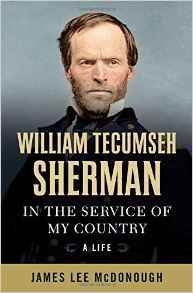
Continued from September 7 (reply #11).



James Lee McDonough, William Tecumseh Sherman: In the Service of My Country, A Life
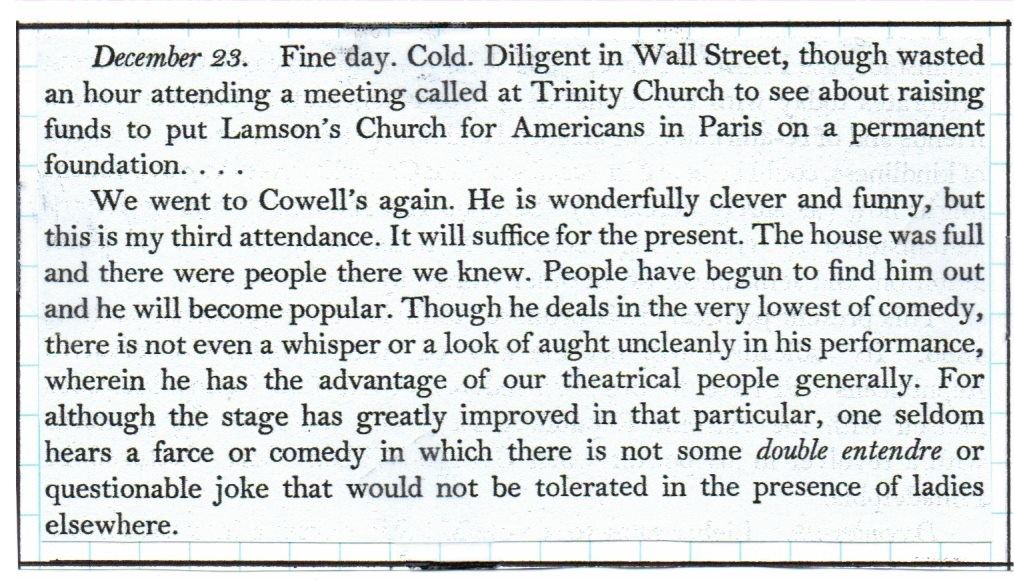
The Diary of George Templeton Strong, Edited by Allan Nevins and Milton Halsey Thomas
Disclaimer: Opinions posted on Free Republic are those of the individual posters and do not necessarily represent the opinion of Free Republic or its management. All materials posted herein are protected by copyright law and the exemption for fair use of copyrighted works.